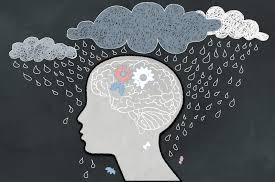Understanding and Managing Major Depression


What Is Major Depression?
What is Major Depression and how does it affect individuals?
Major depression, also known as major depressive disorder (MDD), is a serious mental health condition that affects how a person feels, thinks, and handles daily activities. Unlike normal sadness, which is temporary and often linked to specific events, major depression can last for weeks, months, or even years. It interferes with one’s ability to function and enjoy life.
Key Characteristics:
- Persistent sadness or hopelessness
- Loss of interest in activities once enjoyed
- Significant weight loss or gain
- Sleep disturbances (insomnia or hypersomnia)
- Difficulty concentrating or making decisions
- Fatigue or loss of energy
- Feelings of worthlessness or excessive guilt
- Recurrent thoughts of death or suicide
Major depression can impact all areas of life, from work to relationships, and may lead to other physical and mental health issues if left untreated.
Common Causes of Major Depression
Why do people develop major depression? There isn’t a single cause for major depression; instead, it's usually the result of a combination of genetic, biological, environmental, and psychological factors.
Possible Causes Include:
- Genetics: Family history of depression increases the risk
- Chemical imbalances: Changes in brain neurotransmitters such as serotonin and dopamine
- Stressful life events: Divorce, job loss, or the death of a loved one
- Medical conditions: Chronic illness, pain, or hormonal changes
- Substance abuse: Alcohol or drug misuse can trigger or worsen depression
Understanding the cause can help guide effective treatment, though in many cases, the exact trigger may remain unclear.
How Major Depression Affects Daily Life
What impact does major depression have on everyday functioning?
People with major depression often find it challenging to perform basic daily tasks, and the disorder can affect every aspect of life.
Daily Impacts May Include:
- Work or School: Decreased productivity, frequent absences
- Relationships: Withdrawal from loved ones, increased conflict
- Self-Care: Poor hygiene, neglect of health needs
- Motivation: Loss of drive to complete even minor tasks
- Cognitive Function: Trouble focusing or making decisions
These changes can create a cycle where depression worsens as life becomes increasingly difficult to manage.
Recognizing the Symptoms Early
How can you tell if you or someone you know may have major depression?
Early detection is crucial for managing major depression before it severely disrupts life. Recognizing warning signs allows for faster intervention and better outcomes.
- Warning Signs to Look Out For: Persistent sadness lasting more than two weeks
- Social withdrawal or isolation
- Noticeable changes in appetite or sleep habits
- Sudden drop in energy or enthusiasm
- Expressions of hopelessness or helplessness
- Talk or behavior suggesting self-harm
If any of these symptoms appear, it’s essential to seek help from a healthcare provider or mental health professional.
Treatment Options for Major Depression
What treatments are available for managing major depression?
Treatment typically involves a combination of medication, therapy, and lifestyle changes. Each person's path to recovery is unique, and what works for one person might not work for another.
Common Treatments Include:
- Psychotherapy: Cognitive-behavioral therapy (CBT), interpersonal therapy
- Medications: Antidepressants such as selective serotonin reuptake inhibitors (SSRIs)
- Lifestyle Changes: Regular exercise, healthy diet, and improved sleep habits
- Support Systems: Counseling, support groups, and family support
One of the widely prescribed medications is Paxil (Paroxetine). It is an SSRI that works by balancing serotonin levels in the brain, which helps improve mood, sleep, and overall emotional well-being. While it may take a few weeks to show full effects, it has helped many individuals regain control of their lives.
Understanding Paxil (Paroxetine) for Major Depression
How does Paxil (Paroxetine) help treat major depression effectively?
Paxil, the brand name for Paroxetine, is a widely used antidepressant belonging to the Selective Serotonin Reuptake Inhibitor (SSRI) class. It functions by increasing the levels of serotonin, a neurotransmitter that plays a key role in mood regulation, within the brain. By preventing the reabsorption of serotonin, Paxil helps improve communication between nerve cells, which can alleviate symptoms of depression.
Benefits of Paxil Include:
- Improved mood and emotional stability
- Reduction in anxiety and nervousness
- Better sleep quality and appetite regulation
- Increased energy and motivation
- Fewer intrusive negative thoughts or suicidal ideation
Paxil is typically prescribed in low doses at the beginning and gradually adjusted based on the patient’s response. While it is generally well-tolerated, some people may experience side effects like nausea, dizziness, or dry mouth, especially during the first few weeks. It’s important to follow a healthcare provider’s instructions closely and not stop the medication abruptly, as withdrawal symptoms can occur. With consistent use and monitoring, Paxil has proven to be an effective part of a comprehensive treatment plan for many individuals suffering from major depression.
Life with major depression can feel overwhelming, but it’s important to remember that help is available and recovery is possible. With the right combination of professional support, medication, and self-care, individuals suffering from major depression can lead fulfilling and meaningful lives. Seeking help early, staying informed, and building a strong support system are critical steps in overcoming this challenging condition.
Article Post:Editorial Team of RXShop.md
(Updated at May 17 / 2025)

